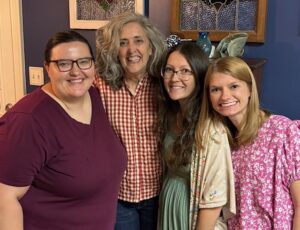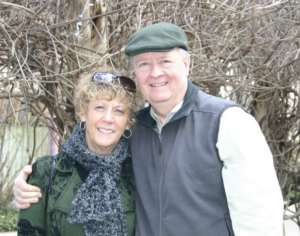The following piece was first published in Asbury Seminary’s Advent Meditations, released this month by FirstFruits (Asbury’s Open Press). I am sharing it here so you’ll know about the devotional guide, and so you’ll be encouraged if your life has you on hold in this season. God is faithful.
Psalm 89 is not ordered in the same way that many other psalms are. Where others begin with lament and end in hope, this one flips the narrative. It begins by laying a foundation of faithfulness. God loves us, the psalmist declares. He is faithful. He can be trusted. What he says, he will do. On that foundation of faithfulness, the writer reminds God that he has already declared that David’s family line will carry the DNA of God’s chosen one — the one for which they have been desperately waiting while they languish in exile.
“You promised, God! Can we trust you to deliver?”
Over and over, the psalmist returns to the faithfulness of God, like laying brick on top of brick to build this foundation he will then stand on as he makes his lament.
The Hebrew word most often used to express the concept of faith more accurately means “to trust” in its verb form. And when that word is used to talk about God, we often see the concept of “security” bubbling up in the context. Other Hebrew words are close relatives. The word for deliverance is related. So is the word for peace.
Take all these ideas together — trust, security, deliverance, peace — and something profound emerges. They teach us that trust is linked to security, and security to deliverance, and deliverance to peace. These concepts seem to build on one another. Until we’ve learned to trust God as God is, there is no security. And with nothing but insecurity to drive us, we will never be delivered from our demons. And without deliverance, there is no peace. So before any question can be asked of God, we must first establish that God is good, that God loves us, that God can be trusted. Only then do our questions and worries have a safe place to land.
By the time the psalm resolves, the writer is ready to offer the classic lament: “How long, Lord?” In a question that plagues every impatient generation, we feel the anguish of lost dreams and exiled people. Will it ever get better? With political partners who cannot be trusted and nations imploding and exploding all around us, with a sense of dire helplessness in the face of all the need we cannot fill, can we trust you, God, to come through? Can’t you come now? After all, you promised!
How long, Lord? How long?
This lament, this longing for a savior is precisely what makes Advent’s message so relevant for every generation and circumstance. Advent’s call to wait is about getting us restless enough to finally march right into the presence of God where we can proclaim to him what we know to be true. He IS faithful. He DOES love us. He IS good. We CAN trust him. Standing on that foundation, we can confidently stoke our hungers, rend the heavens, and hope for God’s promises to be realized, trusting that God is faithful and He will show up.
So the question Advent stirs in me today is this one: Am I hungry for God’s answers, or for his faithfulness?
God, make me hungry for your faithfulness and make me faithful to you as you are to me. Amen.
Merry Christmas, friends!








